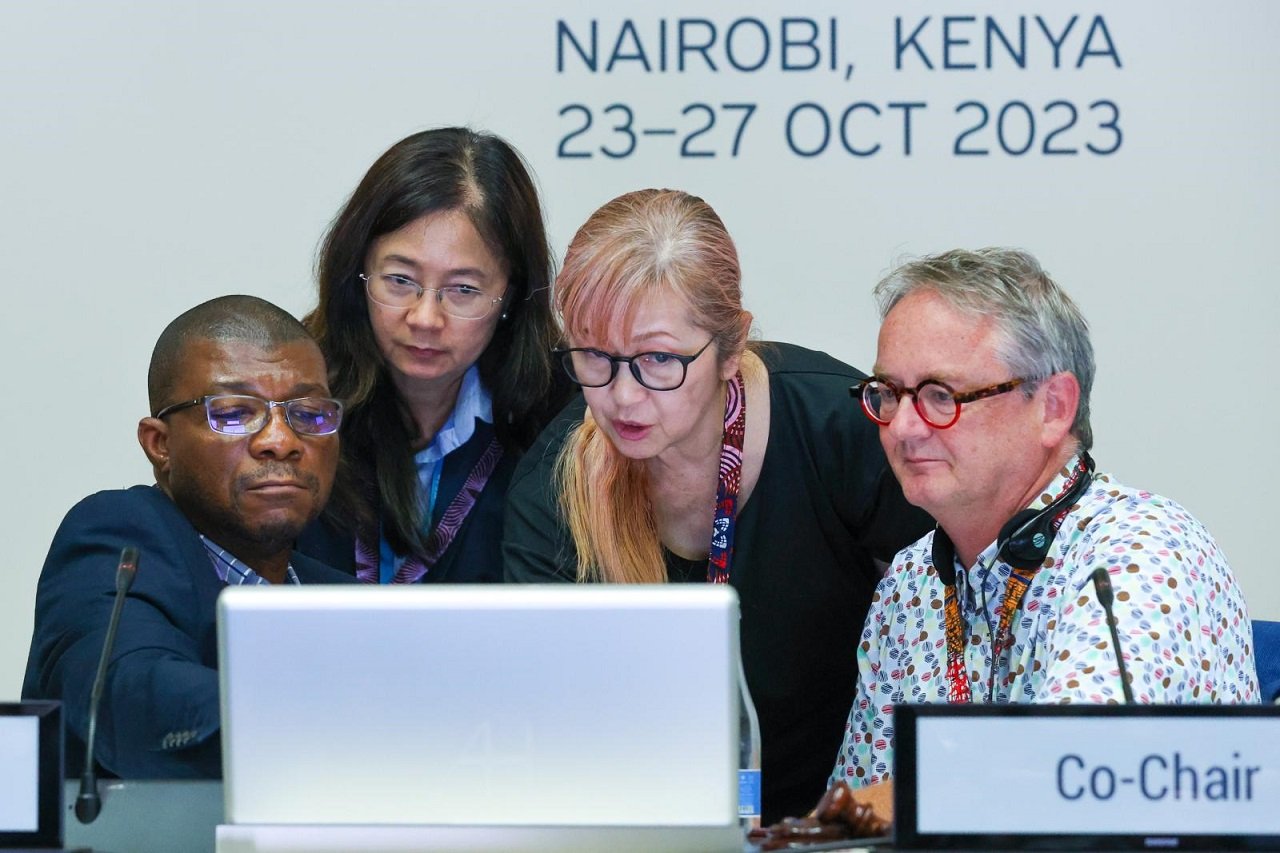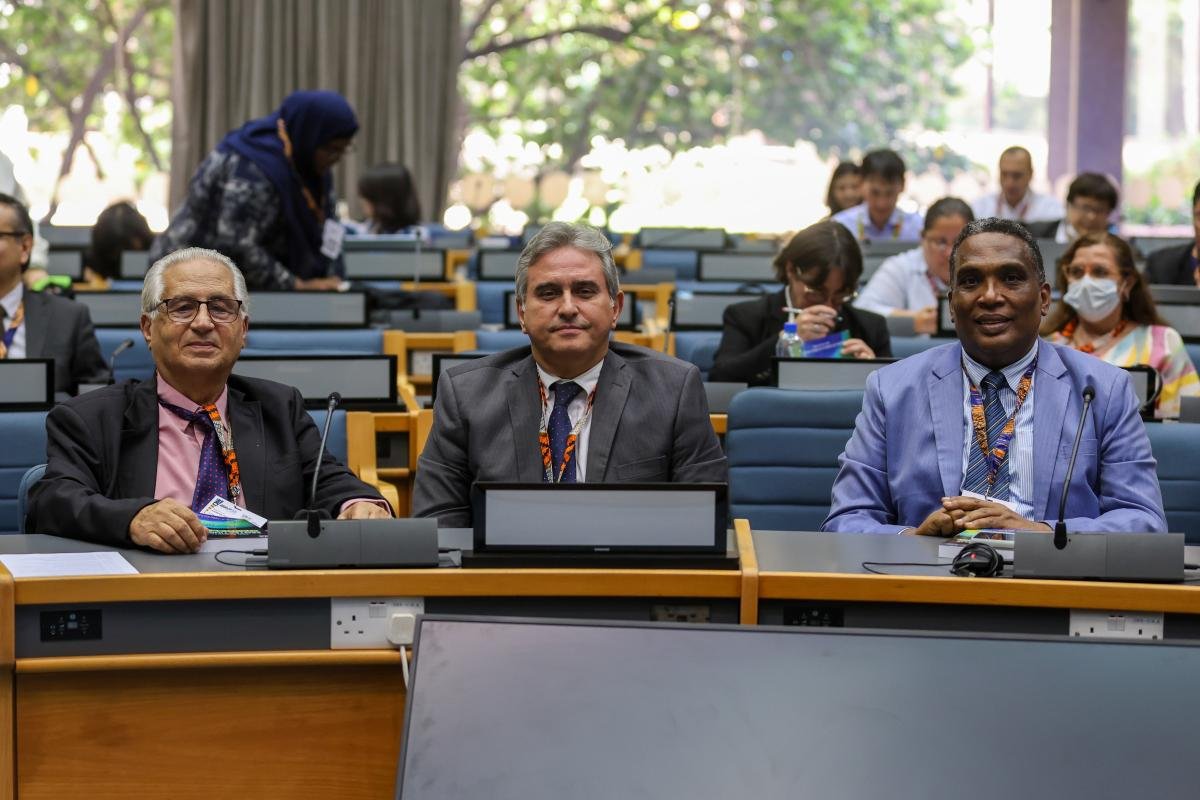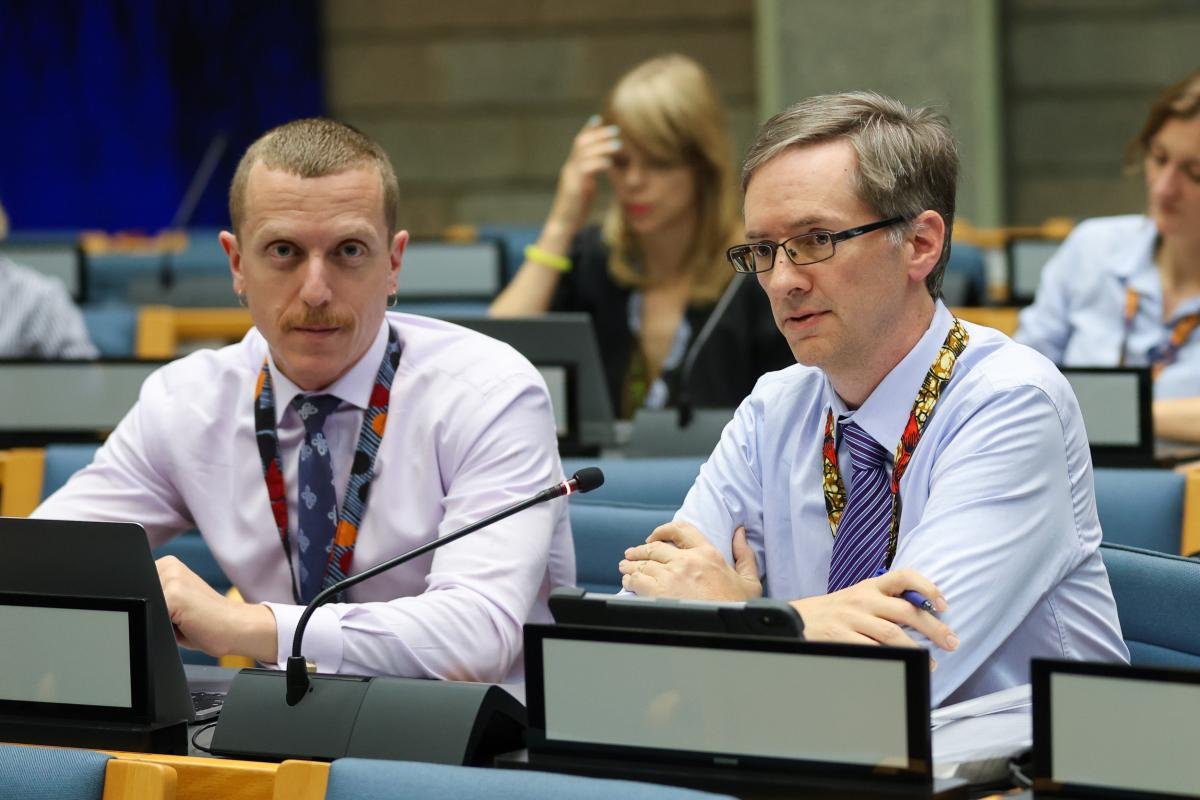The 35th Meeting of the Parties to the Montreal Protocol on Substances that Deplete the Ozone Layer (MOP 35) took place from 23-27 October 2023 in Nairobi, Kenya. The delegates committed to address threats to both the ozone layer and the global climate, designating a significant portion of funding to reduce global temperatures.
In a historic decision, the largest ever replenishment of the Multilateral Fund (MLF) for the implementation of the Protocol was adopted USD 1 billion. This will assist developing countries in implementing their obligations under the Protocol and its Kigali Amendment, with a strong focus on shifting away from harmful greenhouses gases and substances with high global warming potential (GWP).
Despite the heavy agenda, progress was made on almost every item. However, agreement could not be reached on a decision to address quarantine and pre-shipment (QPS) uses of methyl bromide for which alternatives exist. Discussion on a potential roadmap to end illegal trade in controlled substances was deferred to the next meeting of the Montreal Protocol’s Open-Ended Working Group (OEWG).
In the final hours of the meeting, some delegations questioned the binding nature of contributions to the MLF. But, in a spirit of compromise, parties were able to take the historic decision to support developing countries in their efforts to transition away from hydrofluorocarbons (HFCs).
Parties also adopted decisions on substantive matters, including stratospheric aerosol injection, addressing the impacts of the COVID-19 pandemic on HFC baseline consumption for certain parties, energy efficiency, very short-lived substances, feedstock uses of methyl bromide, potential areas of focus for the 2026 quadrennial reports of the Protocol’s Assessment Panels, the import and export of prohibited cooling equipment, and further strengthening Protocol institutions, including for combating illegal trade.
20 November 2023
MOP 35 decides to replenish of the Multilateral Fund by USD 1 billion
Related news
Greener Reefers project highlights natural refrigerants at Hamburg ...
The Greener Reefers initiative, developed by the GIZ Proklima cluster in partnership with the Kuehne Climate Center, was featured at the second Hamburg Sustainability Conference, where over 1,600 a...
06 Jul 2025
Green Cooling Summit 2025 highlights natural refrigerant solutions
The Green Cooling Summit 2025, held virtually and jointly organized by the German Environment Agency (UBA) and GIZ Proklima on behalf of the German Federal Ministry for the Environment, Climate Act...
08 Jun 2025
Morocco launches National Cooling Action Plan with UNEP and RCREEE
Morocco has launched the development of its National Cooling Action Plan (NCAP), supported by the United Nations Environment Programme (UNEP) Cool Coalition, the Regional Center for Renewable Energ...
28 Jun 2025
Jordan NOU and Ministry of Environment enhance Montreal Protocol co...
The UNEP OzonAction Compliance Assistance Programme (CAP), West Asia Office, organized a two-day training workshop for Jordan’s National Ozone Unit (NOU) and enforcement officers at the Ministry...
06 Jul 2025
GlobalABC and Cool Coalition Launch COP30 Pavilion Webinar Series
On 26 June, the UNEP-led Global Alliance for Buildings and Construction (GlobalABC) and the Cool Coalition launched their COP30 Buildings and Cooling Pavilion webinar series with an opening session...
05 Jul 2025
ASEAN launches regional roadmap to expand passive cooling strategies
On 30 June 2025, ASEAN countries launched a coordinated initiative to develop a Regional Roadmap for Passive Cooling Strategies (PCS), aiming to reduce reliance on energy-intensive air conditio...
today


